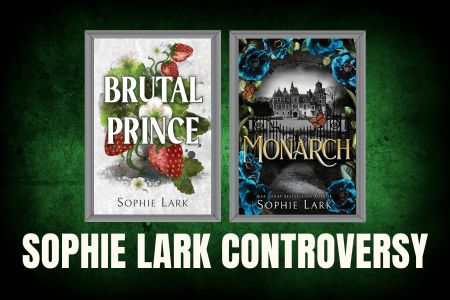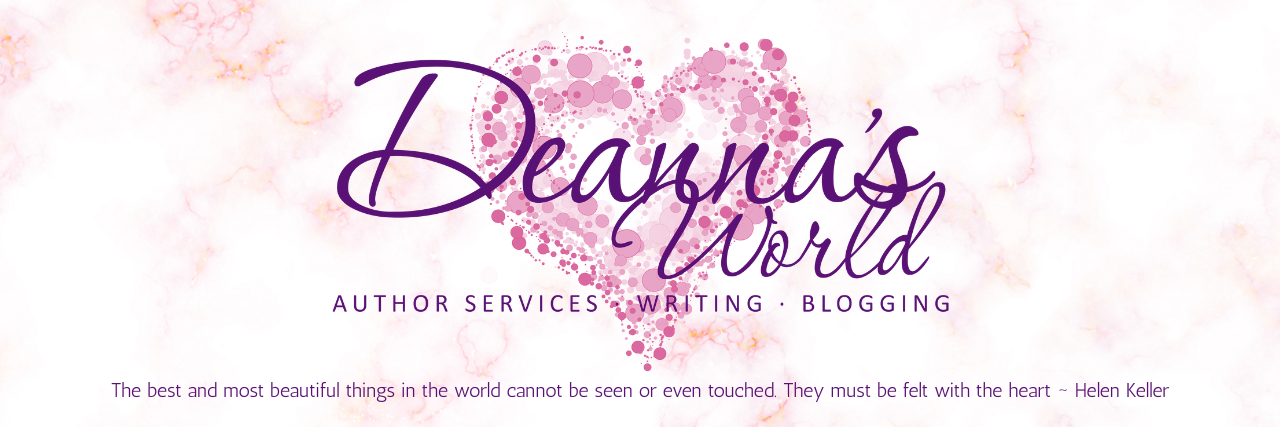
It’s not every day a book publishing story makes you stop. Makes you really think. But a couple of days ago, news crossed my feed that did just that. A Ukrainian publishing house, KSD, made a dramatic decision. They wouldn't just stop selling books by romance author Sophie Lark. They would destroy a massive print run – some 30,000 copies, it seems – of her novel, "Brutal Prince."
My first reaction? Surprise, probably. And a little of that book lover's wince. You know the one. It’s visceral for many of us when we hear about books being destroyed, isn't it? Then the context hit me. This was happening in Ukraine. A country enduring unimaginable horrors of war. Suddenly, this wasn’t merely a publishing dispute. It became a story unfolding against a backdrop of profound national trauma, of raw, heightened sensitivity.
I believe deeply in the power of stories. In an author's freedom to explore the vast landscape of human experience. Yet, I also carry a strong conviction: with that freedom comes responsibility. It's a tension as old as storytelling itself. History shows us this. Authors' voices, rightly or wrongly, have pushed agendas, shaped understanding. Think of Harriet Beecher Stowe's "Uncle Tom's Cabin." For all its complexities and later criticisms, it undeniably fueled America's abolitionist movement. Or Upton Sinclair's "The Jungle." That novel wasn't just a story; it was an exposé. It led to tangible changes in food safety laws. And then, George Orwell. His "Nineteen Eighty-Four" and "Animal Farm" weren't just fiction. They were stark warnings, still resonating today, shaping how we discuss power and control. These authors, countless others, remind us: words have power. Stories can be catalysts. As writers and publishers, we don't create in a vacuum. Our words land in the real world. Sometimes, especially in crisis, they land with an impact we never intended.
This KSD and Sophie Lark situation felt like a complicated knot. Artistic expression, publisher ethics, and the raw, painful reality of a nation fighting for its very survival – all tangled together. It made me want to understand more. To try and see the different threads, the reasons behind such a decision.

The Publisher's Bold Move and the Whispers Online
KSD's Decision and the Initial Narrative
So, KSD, the Ukrainian publishing house, announced their decision about Sophie Lark's books in early 2025. It wasn't a quiet affair. No, they made it pretty clear: they were taking a stand. From various reports, including KSD's own statements, I gathered they were terminating contracts for all of Sophie Lark's series. Most strikingly? They confirmed the destruction of the already printed run of "Brutal Prince." That was a run reported to be as large as 30,000 copies. A significant move.
Their reasoning, KSD officially stated, stemmed from a "mistake in concluding the contract." And, significantly, what they termed the "author's lack of response to the publishing house's appeal" concerning "inadmissibility of such narratives." KSD also mentioned they’d informed the author and her agent of their concerns before the issue blew up publicly. They framed their decision around upholding "moral principles" and supporting "Ukrainian culture." As a writer, and someone in publishing, that "author's lack of response" part really snagged my attention. That, alongside the "mistake in contract" and "inadmissible narratives," points to a breakdown. A communication chasm going deeper than just one book's content.
Almost immediately, the story exploded online. As it often happens, one particular angle quickly dominated, especially in international media. I remember the tweets, the social media posts. Some cited sources like RT (Russia Today) and other outlets. Their claim? "Brutal Prince" was pulled for "romanticizing Russia." More specifically, widespread allegations insisted it contained a line: Crimea is "Russian." Now, anyone following the devastating war in Ukraine knows the immense sensitivity around Crimea. It's occupied territory. A symbol of Ukrainian sovereignty under brutal attack. If a book did say that, especially one sold in Ukraine by a Ukrainian publisher... well, you can see why that would be an explosive issue. Some reports also quickly highlighted another of Lark's books, "Monarch," and its protagonist named Elena Zelenska, drawing immediate parallels to Ukraine's First Lady.
This initial framing – particularly that "Crimea is Russian" allegation for "Brutal Prince" – shaped the early, very heated conversation. It presented a seemingly straightforward case. A book contained a politically charged, offensive statement; the Ukrainian publisher took decisive action. Simple, right? But looking at KSD's more nuanced official statement, I wondered. Was that the whole story? Or was the public narrative just zeroing in on the most incendiary part? Sometimes, the first story to break isn't the most complete one. Especially when emotions run high and information moves at lightning speed.
Digging Deeper – What Do the Books Actually Say?
A Closer Look at “Brutal Prince”
To get a clearer picture, especially with those strong initial claims swirling around, I felt I had to look into "Brutal Prince" itself. So I did. What I found was a story set not in Eastern Europe, but in Chicago. It centered on Italian and Irish mafia families. The plot? An arranged marriage, power struggles, and those dark romance themes – think violence, intense power plays, pretty explicit content – quite standard for its subgenre. What I didn't find was any direct mention of Crimea being Russian. No overt romanticization of the Russian state. This discovery gave me pause. If the book itself didn't contain the specific political flashpoint so widely reported, then what else was going on here? It suggested KSD's reasons might be more complex. Perhaps rooted elsewhere entirely.
Uncovering a Potential Flashpoint with "Monarch"
It seems the heart of the controversy, or a significant part of it anyway, might actually lie with another Sophie Lark book: "Monarch." This is where, for me, the details became particularly sensitive. This is where I started to see the possible depth of the offense, especially considering the Ukrainian context.
"Monarch," as I came to understand it, features a protagonist. Her name? Elena Zelenska. She's from Lviv, Ukraine. The premise involves her using a "wife swap" or "mail-order bride" service to meet an American man. Her primary motivation is to get a K-1 visa, to leave Ukraine quickly, escaping a dire personal situation. The story then plunges into her dark, abusive experiences with this American fiancé.
Learning these specific elements in "Monarch" – that name, so strikingly similar to Ukraine's First Lady, Olena Zelenska, coupled with the "mail-order bride" trope for a Ukrainian woman from Lviv, all wrapped in a dark romance narrative – I began to understand the potential for profound offense. For a nation at war, a nation fighting for its very existence, its identity, the dignity of its people... names and narratives carry immense weight. It prompted me to think: how would this feel to a Ukrainian reader? Seeing a name so closely tied to their national leadership, their resilience, used in such a context? Especially when the character is portrayed as needing to escape her homeland under duress, only to face further exploitation? It felt like it could be seen as a deep trivialization. Perhaps even an outright mockery of their struggle, their national figures. This, to me, seemed a much more direct, much more understandable reason for a Ukrainian publisher to take serious issue.

Wrestling with Arguments. There are Many Sides to this Thorny Issue
This whole situation really surfaces a lot of different viewpoints, doesn't it? It’s not simple. Not black and white. I’ve seen passionate arguments from all sorts of angles.
Context, Empathy, and "Walking in Their Shoes"
For me, one of the most compelling perspectives here is the call for context. For empathy. I keep returning to one thought: what if it were my country? My people, enduring such a devastating war? How would I feel if a name so closely linked to our national leadership, a symbol of our resilience, was used for a character in a dark romance? A character desperate to flee, who then faces abuse? It's hard to truly imagine. But I suspect words, stories – they would land very differently.
When a nation fights for survival, as Ukraine is, sensitivities peak. Understandably. Narratives that seem like harmless fiction in peacetime can suddenly feel deeply personal. Disrespectful. Even a trivialization of immense suffering. KSD is a Ukrainian publisher. I can see how they might feel a profound responsibility. To their readers. To their national identity. To the cultural narrative they're helping shape, especially now. It makes me think: the idea of "reading the room" – or in this case, reading the nation – becomes incredibly important. For authors. For international publishers. It’s that "walk a mile in their shoes" idea. Sometimes, we have to step outside our own context to grasp the impact our words might have on others in theirs.
The 'Fiction is Just Fiction' Camp
On the other hand, I've seen many readers and authors strongly defend the idea that "fiction is just fiction." Their argument? Stories, particularly in genres like romance or dark romance, are for escapism. They're fantasies. Readers are savvy enough, they say, to distinguish fictional narratives from real-world events or political endorsements. From this viewpoint, if a book features dark themes or controversial elements, it’s up to the individual. Choose whether or not to engage. Don’t like it? Don’t read it. But don’t stop others. It's an argument for reader autonomy. For fiction as a space free from the constraints of political correctness or real-world sensitivities. I respect this viewpoint. That freedom, to explore and consume a wide range of stories, is something many of us cherish.
The Author's Tightrope Balancing Freedom and Responsibility
This brings me to the author's role. It often feels like walking a tightrope. We absolutely champion artistic freedom. The right for authors to explore any topic, create complex characters, express their own socio-economic or geopolitical views if they choose. That freedom is vital. Indisputably. Yet, I also believe there's an ongoing conversation to be had. About the responsibility that accompanies that freedom. This isn't about censorship. It's about awareness. About understanding our work's potential impact, especially when writing about other cultures, ongoing crises, or entering specific, sensitive markets. It’s about balancing creative expression with, as I mentioned, a certain care. A sensitivity.
And this isn't the first time Sophie Lark herself has faced a publisher pulling one of her books due to controversy. In fact, just a couple of months before the KSD situation, around March 2025, her book "Sparrow & Vine" was slated to be published by Bloom Books. However, it was abruptly cancelled. Why? Widespread reader outcry. From what I've seen in reports and reader discussions, including pieces in the New York Times and on forums like Reddit, the concerns around "Sparrow & Vine" centered on themes that many readers found deeply problematic – things like dubious consent and the romanticization of abusive power dynamics. Bloom Books, responding to this significant backlash, decided to pull the release.
So, we've seen similar discussions before, and even similar actions taken with this particular author, albeit for different reasons than the KSD case. The "Sparrow & Vine" episode, happening so close to the KSD one, underscores that authors, especially in genres that push boundaries, are increasingly navigating a space where reader expectations and publisher decisions are highly reactive to perceived ethical lines. It reminds us: these aren't entirely new dilemmas, and the conversation about where those lines are drawn is very much alive.

The Publisher's Call. Is it Gatekeeping or Overstepping Boundaries?
And then there's KSD. Their role as publisher. Publishers are businesses, yes. But they also act as cultural curators. They make choices every day about which stories to bring to their audience. KSD, a Ukrainian company, made a decision they clearly felt was ethically necessary for their specific market. From their perspective, they were likely protecting their brand. Their relationship with readers. Fulfilling what they saw as a moral obligation in a time of national crisis. It’s their prerogative as a private entity.
At the same time, I know the act of destroying books – even by a private publisher, for its own inventory – can make many of us uneasy. It can raise questions. About setting precedents. About the potential for such actions to be seen as censorship, even if that wasn't the intent. Personally, I grapple with this part. While I can understand KSD's profound reasons, given their context, the imagery of book destruction is always difficult for me. I mean, I'm still upset about what happened to the Library of Alexandria. And that was a Very. Long. Time. Ago. So, yes. Any kind of book eradication tends to get my inner historian a bit worked up. Even when I can see the complex motivations behind it.

The Story Behind the Story
How Initial Reports Shaped the Conversation
Looking back at how this whole situation unfolded, it's interesting to me. How much the initial reports seemed to frame the entire debate. That early, intense focus on "Brutal Prince," on the specific claim about it saying "Crimea is Russian," really set a particular tone. As we've seen, the actual content of "Brutal Prince" appears different – more a standard dark mafia romance, set in the US.
This isn't to say "Brutal Prince" might not have other elements. Elements some readers, or the publisher, found problematic for their market, especially given its dark themes. But the political charge of that "Crimea" claim was so potent. It perhaps overshadowed other, possibly more central, concerns. Concerns that might have stemmed from "Monarch." It just goes to show, I think, how quickly a narrative can take hold. Especially when it involves such sensitive geopolitical issues. Especially when amplified by various media sources. It makes me reflect. How important is it to try and get the fullest picture possible before drawing firm conclusions? Though I know that’s easier said than done when news is breaking.

What This Means for Us as Writers, Readers, and the Industry
Thinking About Our Roles
This whole episode with KSD and Sophie Lark, and the conversations it sparked, really makes me think. Think about the wider implications for all of us in the book world. Writers. Readers. Those somewhere in between, within the industry. It’s more than just one author, one publisher. It’s a reflection. A reflection of the increasingly complex landscape we’re all navigating.
For writers, I think it underscores a growing importance: cultural sensitivity. Especially when our stories travel across borders. Or touch on real-world events, real-world figures. It’s not necessarily about self-censorship. Perhaps it’s about a deeper level of research. Understanding. Maybe even consultation when we venture into territories or themes outside our direct experience. Themes that could be particularly raw for a specific audience. The world feels smaller than ever. Our words can reach corners we might not even anticipate. That global reach? Exciting. But it also comes with a responsibility to be mindful.
For us as readers, situations like this might encourage a more critical, more contextual approach to what we consume. It’s easy, isn't it? See a headline, a social media post, form an instant opinion. But as we’ve seen here, the story behind the story can often be more nuanced. Perhaps it’s an invitation. To dig a little deeper. To consider different perspectives. To be aware of the contexts from which books emerge, and into which they are received. It also highlights our power. Reader feedback, especially in the age of social media, can have a significant impact. On authors. On publishers alike.
And for the publishing industry as a whole? This feels like yet another reminder. A reminder of the delicate balancing act. Commercial interests, artistic freedom, ethical considerations – all in play. Publishers often find themselves in the crosshairs. Trying to serve their authors, their readers, their own business imperatives. In an era of heightened global tensions, of rapid information spread, their decisions are under more scrutiny than ever. Decisions about what to publish. How to market it. How to respond to controversy. It might mean a greater need for clear communication. For robust editorial processes that consider cultural nuances. And perhaps, for more transparent dialogue when issues do arise.
Ultimately, I don't think there are easy answers. No one-size-fits-all solutions. But these conversations, uncomfortable as they can sometimes be, are important. They push us. Push us to think about the values we hold dear in the literary world. And how we apply them in an ever-changing global environment.
The Enduring Power and Delicate Dance of Words
So, where does all this leave us? The story of KSD, Sophie Lark, "Brutal Prince," and "Monarch" isn't just a publishing anecdote. It’s a small window. A window into a much larger, ongoing conversation about fiction's role in a world that often feels fractured, fraught. For me, it’s been a reminder. Even in the realm of escapist literature, real-world pain and sensitivities can cast long shadows.
What I keep coming back to is that delicate dance. Sometimes precarious. The dance between an author's freedom to create and the undeniable impact words can have. Especially when they land in a community experiencing profound trauma. The initial narrative around "Brutal Prince," the subsequent revelations about "Monarch" – they highlight how quickly information can spread. How vital it is to seek understanding beyond the headlines.
I started this exploration with a belief in artistic freedom. I still hold that belief firmly. But this situation? It has deepened my appreciation for the other side of that coin: the responsibility that comes with wielding the power of storytelling. It’s not about demanding fiction always be comfortable. Or politically sanitized – far from it. Some of the most important stories are the ones that challenge us. But it is about encouraging greater awareness. A more profound empathy. A willingness to consider the context in which our words are read, experienced.
The decision by KSD, a publisher in a nation under siege, to destroy books is stark. As I've said, it's an act that instinctively makes the book lover in me (yes, still mourning the Library of Alexandria!) deeply uneasy. Yet, understanding the potential pain, the offense caused – particularly by "Monarch's" elements, seen through Ukrainian eyes – adds layers of complexity. Layers impossible to ignore.
Ultimately, no easy pronouncements here. Each of us – writers, readers, publishers – will likely draw our own lines. Our own conclusions. But perhaps the most valuable takeaway is the conversation itself. If this story makes us think a little more deeply – about the stories we tell, the stories we consume, the impact they have – then it’s served a purpose. A purpose beyond the immediate controversy. In a world desperately needing more understanding, the power of words, and the care with which we use them, matters more than ever.

Let's Chat!
So, those are my reflections on a really complex situation. But as always, this is just the start of the conversation, not the end of it. What are your thoughts? Did the initial news about "Brutal Prince" catch your attention? How do you balance artistic freedom with the kind of sensitivities we've talked about here, especially in times of crisis? And what about the publisher's actions -- where do you stand?
I'm genuinely curious to hear different perspectives. Drop your thoughts in the comments below – let's talk about it! You can also connect with me on Facebook, via email, or through my newsletter.
Find me everywhere:





No comments:
Post a Comment